
Discover the Ancient Beauty of Orheiul Vechi
Orheiul Vechi is a mystical archaeological complex located in Moldova, just an hour's drive from the capital, Chișinău. Nestled in a scenic valley carved by the Răut River, this site offers a captivating blend of natural beauty and historical intrigue. Dating back to the Paleolithic era, Orheiul Vechi boasts remnants from various ancient civilizations, including the Dacians, Mongols, and Tatars. Wander through the rock-hewn monasteries and ancient fortresses that dot the landscape, each telling a story of the region's rich past. The Cave Monastery, carved into limestone cliffs, is a highlight, offering breathtaking views of the meandering river below. The monastery's rustic interior, with its ancient frescoes and simple decor, provides a serene retreat from the modern world. In addition to its historical significance, Orheiul Vechi is a haven for nature lovers. The lush valleys, rolling hills, and tranquil riverbanks create an idyllic setting for hiking and photography. As you explore the area, you’ll encounter traditional Moldovan villages where time seems to stand still, offering a glimpse into the local way of life. The village of Butuceni, with its traditional houses and hospitable locals, is particularly charming and worth a visit.
Local tips in Orheiul Vechi
- Visit in spring or autumn for pleasant weather and fewer crowds.
- Wear comfortable shoes as the terrain can be uneven.
- Hire a local guide to fully appreciate the historical significance of the site.
- Bring a camera for stunning landscape photos.
- Try traditional Moldovan food in the village of Butuceni.
Discover the Ancient Beauty of Orheiul Vechi
Orheiul Vechi is a mystical archaeological complex located in Moldova, just an hour's drive from the capital, Chișinău. Nestled in a scenic valley carved by the Răut River, this site offers a captivating blend of natural beauty and historical intrigue. Dating back to the Paleolithic era, Orheiul Vechi boasts remnants from various ancient civilizations, including the Dacians, Mongols, and Tatars. Wander through the rock-hewn monasteries and ancient fortresses that dot the landscape, each telling a story of the region's rich past. The Cave Monastery, carved into limestone cliffs, is a highlight, offering breathtaking views of the meandering river below. The monastery's rustic interior, with its ancient frescoes and simple decor, provides a serene retreat from the modern world. In addition to its historical significance, Orheiul Vechi is a haven for nature lovers. The lush valleys, rolling hills, and tranquil riverbanks create an idyllic setting for hiking and photography. As you explore the area, you’ll encounter traditional Moldovan villages where time seems to stand still, offering a glimpse into the local way of life. The village of Butuceni, with its traditional houses and hospitable locals, is particularly charming and worth a visit.
When is the best time to go to Orheiul Vechi?
Iconic landmarks you can’t miss
Orheiul Vechi Cultural and Natural Reserve
Discover Moldova's ancient heart: Explore cave monasteries, dramatic landscapes, and traditional villages in Orheiul Vechi.
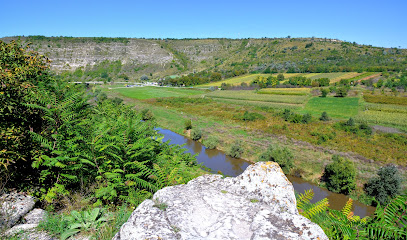
Vasile Lupu monument
Discover the Vasile Lupu Monument in Orhei, Moldova – a tribute to history, culture, and architecture amidst serene parkland. A must-see landmark!
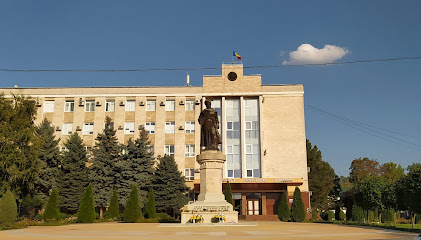
Cave Monastery
Discover Moldova's ancient Cave Monastery in Butuceni: a spiritual sanctuary carved into dramatic cliffs with breathtaking river valley views.
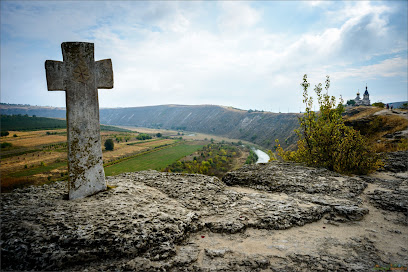
Tatar Bath Ruins
Explore Moldova's Tatar Bath Ruins: An open-air museum revealing the fascinating history and cultural significance of a 14th-century bath complex.
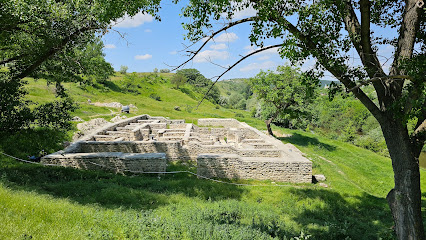
Old Orhei
Explore the breathtaking landscapes and rich cultural heritage of Old Orhei, Moldova's premier archaeological and historical site.
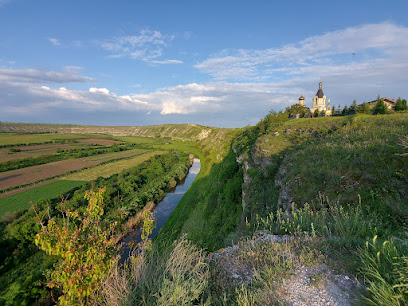
Viewpoint towards Old Orhei
Breathtaking panoramic views of Moldova's ancient Orheiul Vechi cultural landscape, a blend of nature and history.
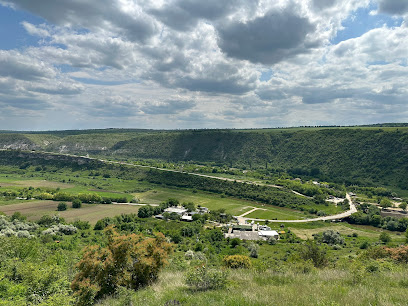
Bosie Cave Monastery
Discover the serene Bosie Cave Monastery in Old Orhei, Moldova, a unique 17th-century hermitage carved into limestone cliffs with stunning views.
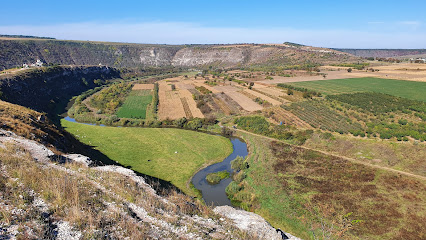
Старый Орхей
Discover Moldova's ancient heart at Old Orhei: Explore cave monasteries, dramatic landscapes, and centuries of history in this captivating cultural reserve.
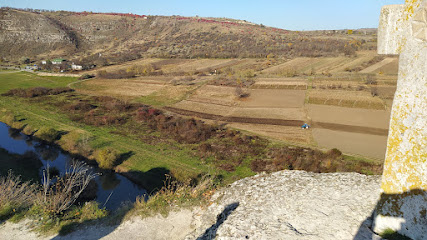
Orheiul Vechi, Trebujeni
Discover Moldova's ancient heart at Orheiul Vechi: Explore cave monasteries, dramatic landscapes, and centuries of history along the Răut River.
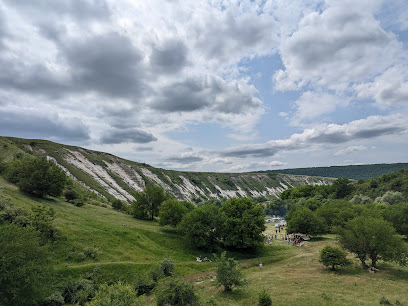
Medieval Church Remains
Discover Moldova's medieval past at the captivating Church Remains in Orhei Vechi, a blend of history and stunning natural beauty.
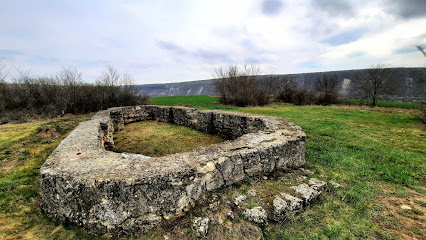
Ruine
Explore ancient echoes at Butuceni's ruins, a captivating journey through Moldova's rich history within the Orheiul Vechi complex.
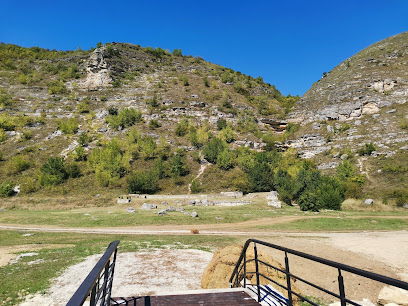
Old Orhei Fort
Discover Moldova's ancient heart at Old Orhei: a stunning landscape where history is carved in stone and faith echoes through the ages.
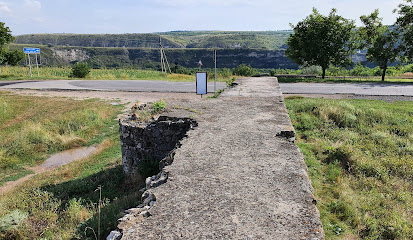
Unmissable attractions to see
Eroii Patriei Park
Discover Eroii Patriei Park, a peaceful green space in Chișinău dedicated to veterans, perfect for relaxation and reflection amidst beautiful landscapes.
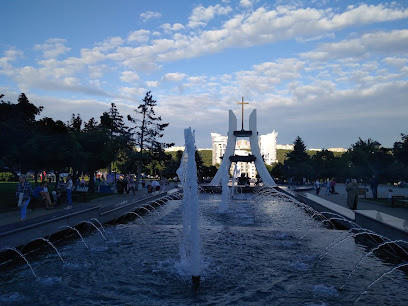
Cascade Stairs
Experience the beauty and history of Chișinău at the Cascade Stairs, a monumental attraction offering stunning views and lush surroundings.
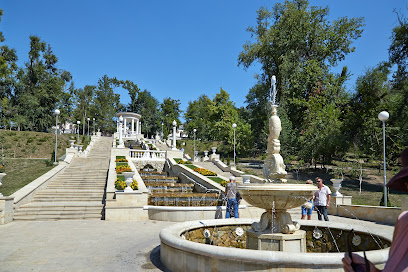
Orheiul Vechi Cultural and Natural Reserve
Explore the stunning landscapes and rich archaeological heritage of Orheiul Vechi Cultural and Natural Reserve in Moldova, a perfect blend of nature and history.
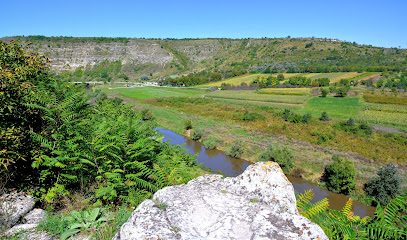
La Izvor Park
Explore La Izvor Park, a serene urban oasis in Chișinău, offering beautiful landscapes, recreational activities, and a peaceful escape from city life.
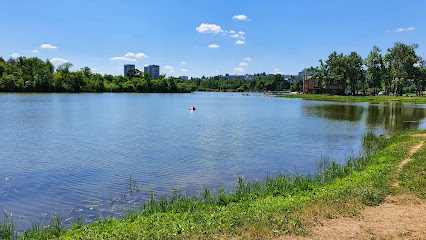
Parcul Ivanos
Discover the tranquility of Parcul Ivanos, a lush urban park in Orhei, Moldova, perfect for leisurely strolls and family outings amidst nature's beauty.
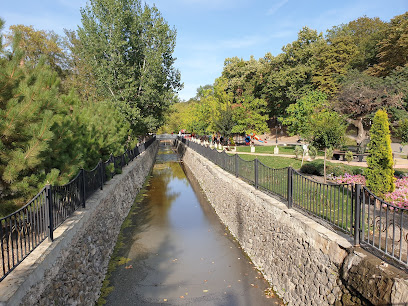
Old Orhei
Explore Old Orhei, Moldova's breathtaking archaeological site, revealing ancient monasteries and stunning landscapes steeped in history.
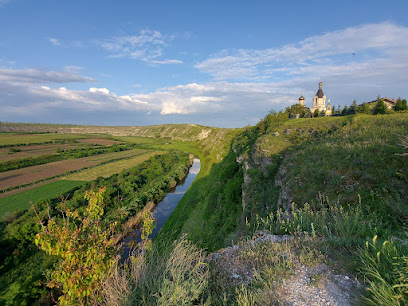
Viewpoint towards Old Orhei
Experience the stunning views of Old Orhei from the observation deck, where Moldova's natural beauty and rich history come together.
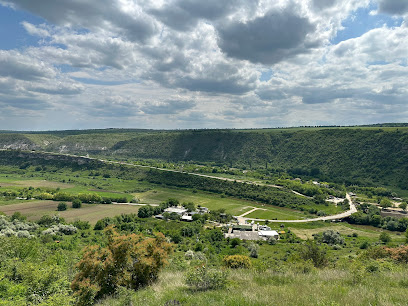
Butuceni Ethnography Museum
Experience the rich cultural tapestry of Moldova at the Butuceni Ethnography Museum, where tradition and history come alive.
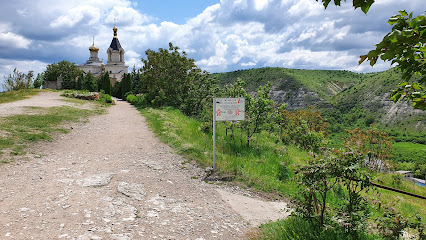
Orheiul Vechi, Trebujeni
Explore Orheiul Vechi, a breathtaking hiking area in Trebujeni, Moldova, where nature, history, and culture intertwine in stunning landscapes.
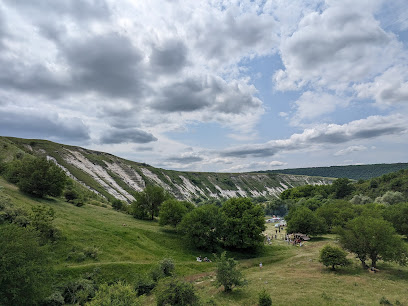
Podul Piatra
Explore the enchanting beauty of Podul Piatra in Lazo, Moldova, where nature and tranquility meet in a picturesque setting.
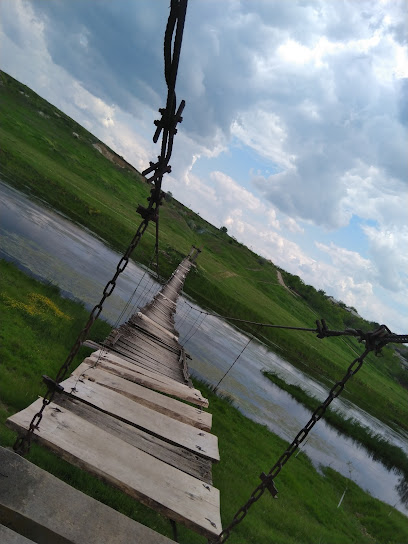
Trebujeni Viewpoint
Discover the stunning Trebujeni Viewpoint in Moldova, offering breathtaking views of the Raut River and captivating landscapes.
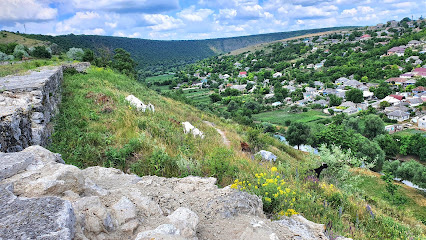
Medieval Church Remains
Explore the Medieval Church Remains in Moldova's Orhei Vechi, a historical landmark that captures the essence of ancient architecture and natural beauty.
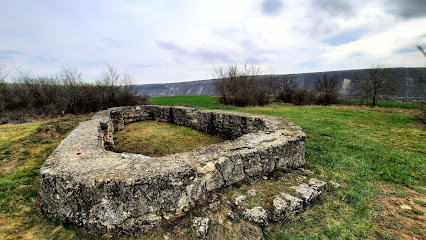
Old Orhei Fort
Experience the rich history and breathtaking views at Old Orhei Fort, a mesmerizing blend of nature and heritage in Moldova.
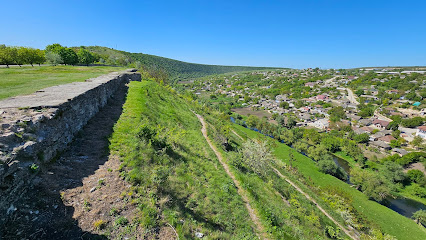
Essential places to dine
Epoca de Piatră
Discover authentic Moldovan cuisine at Epoca de Piatră in Brăneşti – a unique dining experience filled with tradition and flavor.
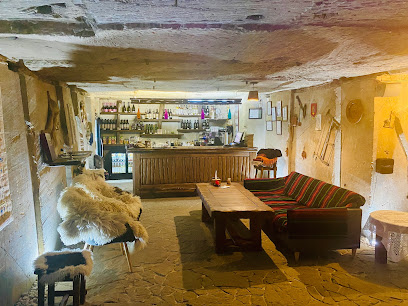
Villa Etnica
Experience authentic Moldovan cuisine at Villa Etnica in Butuceni—where tradition meets culinary excellence amid stunning landscapes.
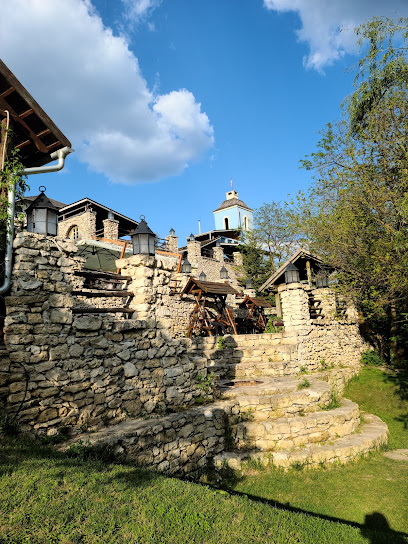
Eco-Resort Butuceni
Experience tranquility at Eco-Resort Butuceni – where nature meets comfort in beautiful Moldova.
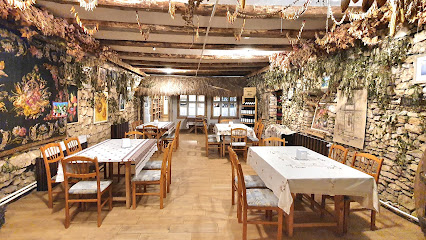
Dolce Vita
Experience the best pizza in Orhei at Dolce Vita – where authentic Italian flavors meet warm hospitality.
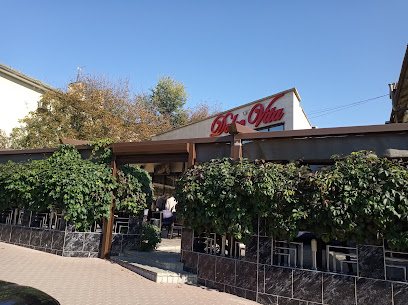
Acropolis
Discover authentic Moldovan cuisine at Acropolis in Orhei - where tradition meets modern culinary artistry.
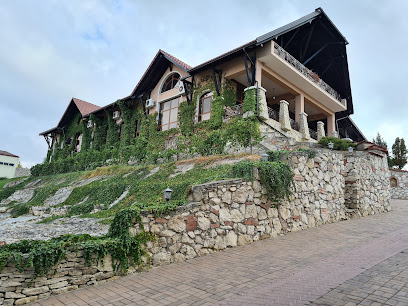
Chateau Vartely
Experience the best of Moldovan wine at Chateau Vartely—where breathtaking views meet exquisite flavors in a charming winery setting.
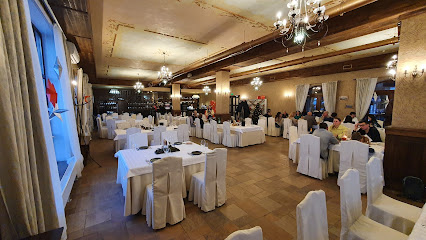
Safari
Discover the vibrant flavors of Moldova at Safari Restaurant in Orhei - where culinary creativity meets warm hospitality.
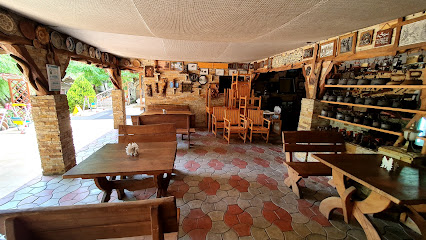
Pizza Family
Experience authentic Italian flavors at Pizza Family in Orhei - where comfort food meets warm hospitality.
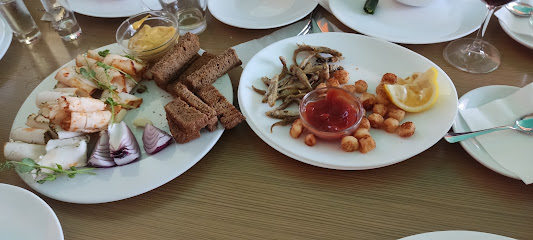
Cafenea Diana
Experience authentic Moldovan cuisine at Cafenea Diana - where warm hospitality meets delicious local flavors.
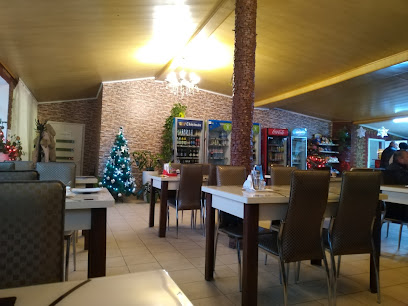
LA STRADA
Experience the heart of Moldovan cuisine at La Strada in Orhei – where local flavors meet warm hospitality.
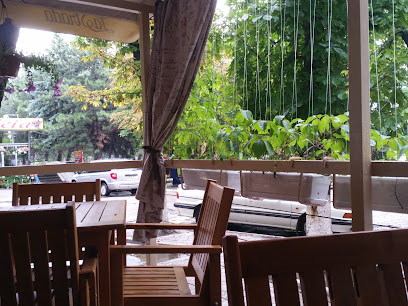
Pizza Mania
Discover authentic Italian flavors at Pizza Mania in Orhei – where every slice tells a story!
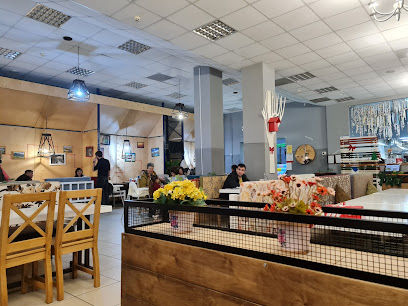
Casa din Lunca Pension
Experience authentic Moldovan cuisine and warm hospitality at Casa din Lunca Pension in scenic Trebujeni.
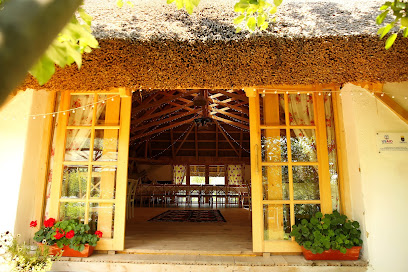
Ellada
Discover authentic Moldovan cuisine at Ellada in Orhei—where tradition meets taste in every dish.
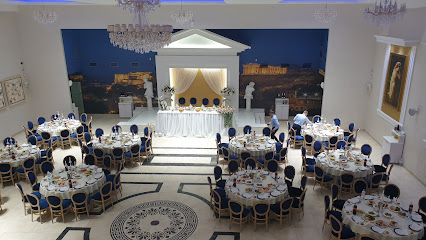
Casa Fermierului
Experience authentic Moldovan cuisine amidst breathtaking rural landscapes at Casa Fermierului.
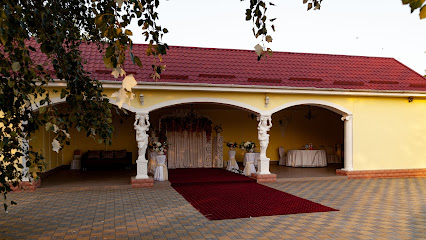
Select Lounge
Experience exquisite dining at Select Lounge in Orhei - where traditional Moldovan flavors meet modern culinary artistry.

Markets, malls and hidden boutiques
Orheiul Vechi Cultural and Natural Reserve
Orheiul Vechi Cultural and Natural Reserve: A breathtaking blend of stunning landscapes and rich history in Moldova's heart.
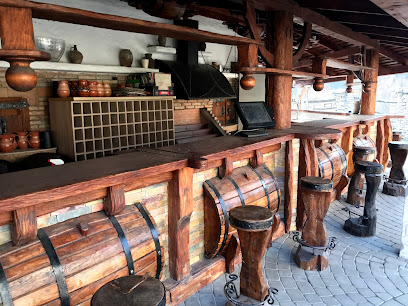
Pici si Mamici
Explore Pici si Mamici in Orhei, Moldova – your go-to destination for stylish children's clothing and family-friendly fashion.
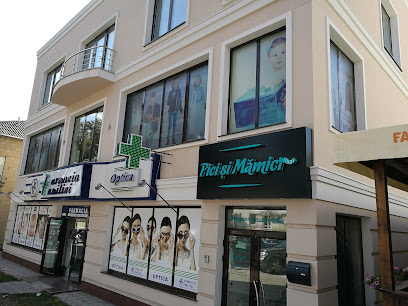
Relax
Experience the essence of Moldovan culture at Relax, a charming store in Orhei offering unique souvenirs and local crafts.
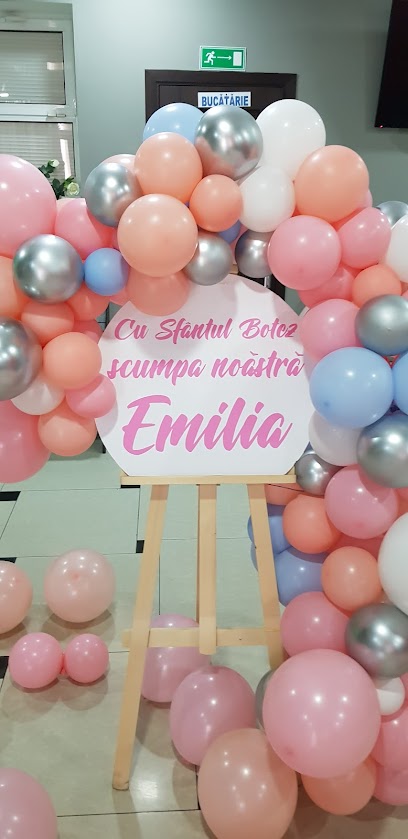
Albinuța
Explore the enchanting Albinuța Bookstore in Orhei, Moldova - a haven for book lovers and a cultural treasure trove.
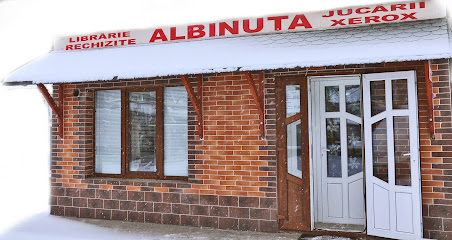
Nova Porta
Explore the exquisite craftsmanship of doors at Nova Porta, Orhei's premier door shop, showcasing the best of Moldovan artistry and design.
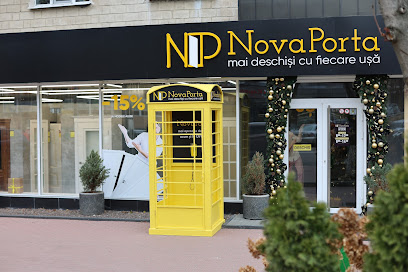
Flori
Experience the beauty of Moldova through stunning floral arrangements and unique gifts at Flori in Orhei, a must-visit for all flower enthusiasts.
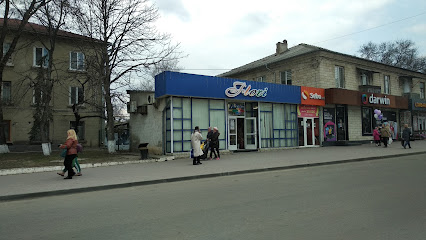
Magazin agricol Orhei - AgroMarket
Discover the best garden center in Orhei, Moldova, featuring a wide variety of plants, tools, and expert advice for every gardening enthusiast.
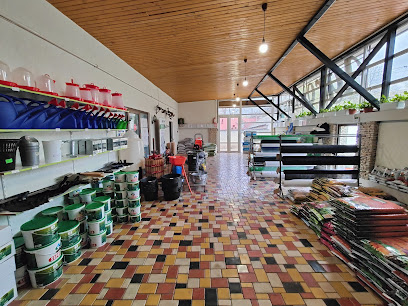
Jardi Market
Explore local flavors and vibrant produce at Jardi Market, a premier supermarket in Orhei, Moldova, perfect for tourists seeking authentic experiences.
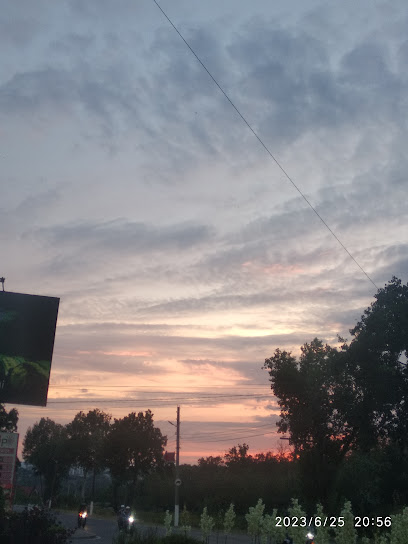
Optica Ta
Explore the stylish and diverse range of sunglasses at Optica Ta, the top eyewear destination in Orhei, Moldova.

Dumbrava
Explore Dumbrava in Orhei, Moldova, for a unique shopping experience filled with local crafts and authentic flavors that reflect the region's rich culture.
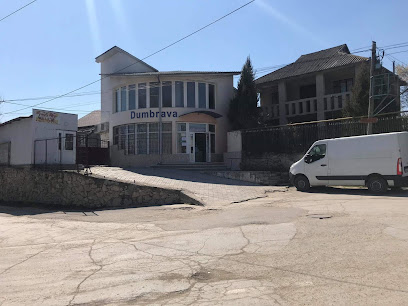
Gramma
Explore Hîrtopul Mare with ease at Gramma, your convenient store for local snacks and essentials, open daily from 8 AM to 9 PM.

XENON
Explore XENON in Orhei for top-quality appliances and exceptional service in the heart of Moldova.
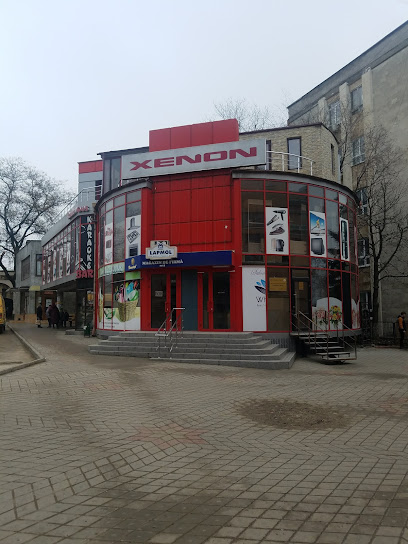
Beauty Shop Orhei
Explore Beauty Shop Orhei for an exquisite selection of cosmetics that elevate your beauty routine in the heart of Moldova.
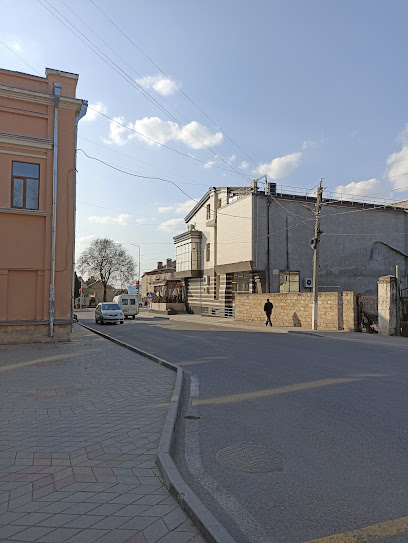
SRL EuroElitStal
Discover top-quality bathroom supplies at SRL EuroElitStal in Orhei, Moldova—where style meets functionality for every home.
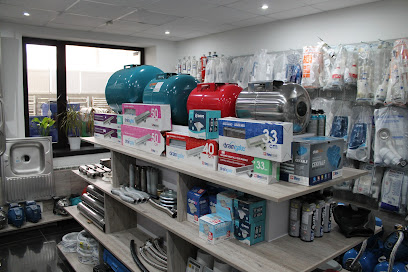
Orheianca - Cadouri și Surprize în Orhei
Explore Orheianca, your go-to destination for exquisite flowers, unique gifts, and delightful surprises in Orhei, Moldova.
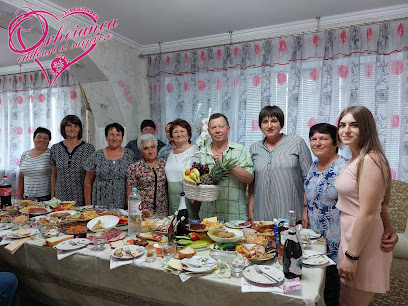
Essential bars & hidden hideouts
Villa Etnica
Discover the authentic tastes of Moldova at Villa Etnica, where traditional cuisine meets breathtaking scenery in Butuceni.
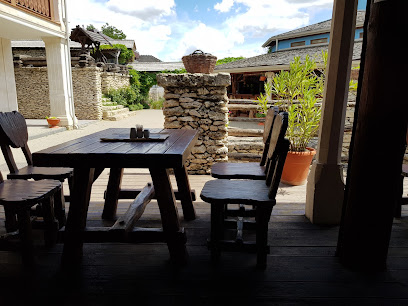
Eco-Resort Butuceni
Experience the enchanting blend of Moldovan culture and nature at Eco-Resort Butuceni, a hidden gem for eco-conscious travelers.
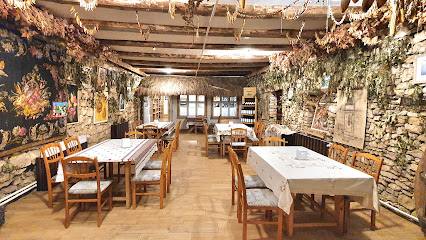
Select Lounge
Experience authentic Moldovan cuisine at Select Lounge, a cozy restaurant in Orhei that delights with its flavorful dishes and welcoming atmosphere.

Berăria La Hîncu
Discover the rich flavors of local craft beers and delicious cuisine at Berăria La Hîncu, Peresecina's premier brewpub destination.
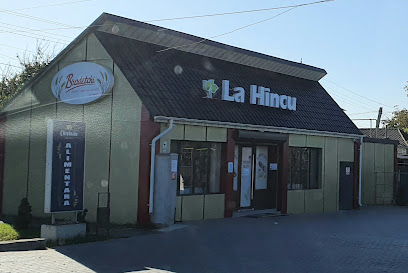
SHAPOVALOV BAR
Discover the lively atmosphere and local flavors at Shapovalov Bar in Moldova, a must-visit for nightlife enthusiasts.
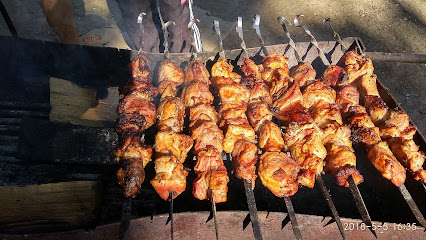
Restaurant ”de Vis”
Discover the authentic flavors of Moldova at Restaurant 'de Vis' in the scenic village of Trebujeni, where every dish tells a story.
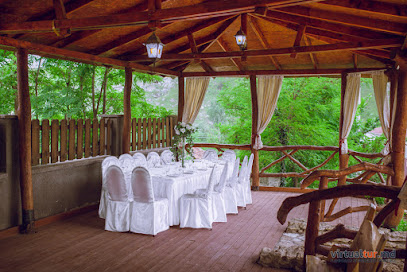
Magazin Mixt
Discover the vibrant atmosphere of Magazin Mixt in Raionul Orhei, Moldova, where local flavors meet friendly hospitality.

La bar la Senea
Discover La Bar la Senea in Bălăşeşti – a cozy bar offering a unique blend of local flavors and a warm atmosphere for tourists.

Hangar
Discover a culinary and nightlife gem in Orhei, Moldova, where vibrant atmosphere meets delicious dining and lively entertainment.
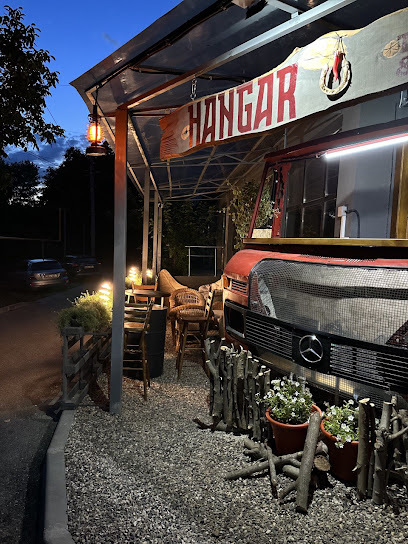
Me Gusta
Discover the vibrant grill culture at Me Gusta in Orhei, Moldova, where delicious food meets a lively bar atmosphere.
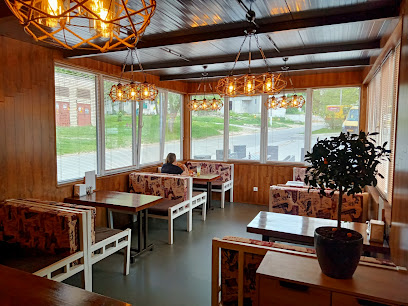
Bere Bună
Experience the vibrant nightlife of Orhei at Bere Bună, a lively bar serving local brews and a welcoming atmosphere for all visitors.

Garage
Experience the vibrant local culture at Garage, a charming bar in Orhei, Moldova, offering a delightful selection of drinks in a welcoming atmosphere.
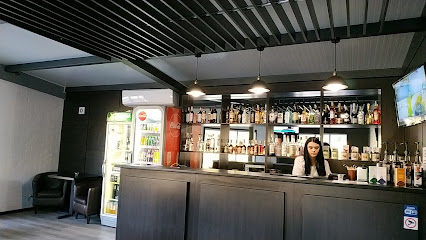
VinBere
Experience the essence of Moldova at VinBere, a bar in Orhei offering an exquisite selection of local wines and delightful culinary pairings.
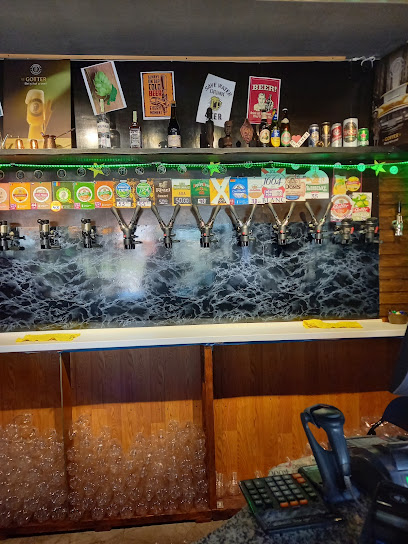
NIPPON SUSHI
Experience authentic Japanese cuisine at Nippon Sushi in Orhei, Moldova - a sushi lover's paradise in the heart of the city.
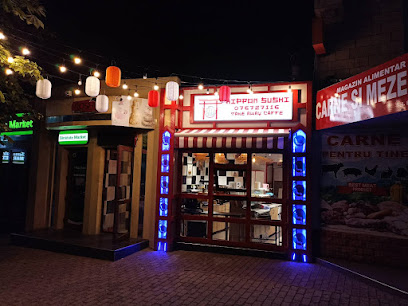
Local Phrases about Orheiul Vechi
-
- HelloSalut
[sah-LOOT] - GoodbyeLa revedere
[la re-ve-DE-re] - YesDa
[da] - NoNu
[noo] - Please/You're welcomeTe rog
[te rohg] - Thank youMulțumesc
[mool-TSOO-mesk] - Excuse me/SorryScuzați-mă
[skoo-ZA-tsi ma] - How are you?Ce mai faci?
[che my FA-chi] - Fine. And you?Bine. Și tu?
[BEE-ne. she too] - Do you speak English?Vorbiți engleză?
[vor-BEE-tsi en-gle-ZA] - I don't understandNu înțeleg
[noo in-tse-LEG]
- HelloSalut
-
- I'd like to see the menu, pleaseAș dori să văd meniul, vă rog
[ush DO-ree su vad me-NYOO-ool, va rohg] - I don't eat meatNu mănânc carne
[noo mun-UNK KAR-neh] - Cheers!Noroc!
[noh-ROK] - I would like to pay, pleaseAș dori să plătesc, vă rog
[ush DO-ree su PLAT-esk, va rohg]
- I'd like to see the menu, pleaseAș dori să văd meniul, vă rog
-
- Help!Ajutor!
[a-ZHOO-tor] - Go away!Du-te!
[doo-te] - Call the Police!Sunați Poliția!
[soo-NATSI po-LEE-tsee-ah] - Call a doctor!Sunați un doctor!
[soo-NATSI oon DOC-tor] - I'm lostM-am rătăcit
[mum ra-ta-TCHIT] - I'm illSunt bolnav
[soont bohl-NAV]
- Help!Ajutor!
-
- I'd like to buy...Aș dori să cumpăr...
[ush DO-ree su KUM-par] - I'm just lookingDoar mă uit
[doh-AR mu ooit] - How much is it?Cât costă?
[kut KOS-ta] - That's too expensiveEste prea scump
[ES-te pra skoomp] - Can you lower the price?Puteți scădea prețul?
[poo-TE-tsi ska-DE-a pret-sool]
- I'd like to buy...Aș dori să cumpăr...
-
- What time is it?Cât este ora?
[kut YES-te OR-ah] - It's one o'clockEste ora unu
[ES-te OR-ah OON-oo] - Half past (10)Jumătate (10)
[zhoo-MAH-ta-te (dou-ZE-she)] - MorningDimineața
[dee-mi-NEA-tsa] - AfternoonDupă-amiază
[DOO-pa-a-mi-A-za] - EveningSeara
[SE-a-ra] - YesterdayIeri
[YE-ree] - TodayAstăzi
[as-TUH-zee] - TomorrowMâine
[muh-YNE] - 1Unu
[OO-noo] - 2Doi
[doy] - 3Trei
[tray] - 4Patru
[PA-troo] - 5Cinci
[CHEEN-chee] - 6Șase
[SHA-she] - 7Șapte
[SHAP-te] - 8Opt
[opt] - 9Nouă
[NOO-wuh] - 10Zece
[ZE-che]
- What time is it?Cât este ora?
-
- Where's a/the...?Unde este unul/o...
[oon-de YES-te OON-ool/o] - What's the address?Care este adresa?
[ka-re YES-te a-DRE-sa] - Can you show me (on the map)?Puteți să-mi arătați (pe hartă)?
[poo-TE-tsi suh-mee a-RA-tsa-tsi (pe HAR-ta)] - When's the next (bus)?Când vine următorul (autobuz)?
[kund VEE-ne oor-MA-tor-ool (OW-to-booz)] - A ticket (to ....)Un bilet (spre ....)
[oon BEE-let (spre ....)]
- Where's a/the...?Unde este unul/o...
History of Orheiul Vechi
-
Orheiul Vechi is believed to have been inhabited since the Paleolithic era, but its historical significance began with the Dacians, who settled in the region around the 6th century BC. The Dacians, known for their fierce resistance against the Roman Empire, established a fortified settlement on the cliffs of the Răut River. This early fortification laid the groundwork for the site's long-standing strategic importance.
-
In the 13th century, the Mongol invasions had a profound impact on Orheiul Vechi. The Golden Horde, a Mongol khanate, controlled the area and left significant architectural and cultural influences. The ruins of the Mongol Tatar fortifications can still be found at Orheiul Vechi, showcasing the region's turbulent history and the resilience of its inhabitants.
-
During the 14th and 15th centuries, Orheiul Vechi became a crucial center for the Principality of Moldavia. The site was transformed into a formidable medieval citadel under the rule of Prince Stephen the Great. The fortifications were enhanced, and the area served as an important military and administrative hub. The remnants of the medieval walls and towers are a testament to this period of Moldavian history.
-
One of the most remarkable features of Orheiul Vechi is its monastic complex, which dates back to the 14th century. Carved directly into the limestone cliffs, the cave monasteries were initially founded by Orthodox monks seeking solitude and spiritual refuge. The complex includes several churches, cells, and chapels, offering a glimpse into the ascetic lifestyle of the early monastic communities.
-
In the 16th century, Orheiul Vechi fell under Ottoman control, which brought new cultural and architectural elements to the region. The Ottomans introduced new building techniques and styles, some of which can still be seen in the ruins today. This period also marked the decline of the citadel's military significance, as the region became more integrated into the Ottoman Empire's administrative structure.
-
In the 20th century, Orheiul Vechi gained recognition as a significant archaeological and cultural site. Extensive excavations have uncovered layers of history, from the Dacian era to the Ottoman period. Today, Orheiul Vechi is a protected cultural reserve and a popular tourist destination, offering visitors a unique opportunity to explore Moldova's rich historical tapestry.
Orheiul Vechi Essentials
-
Orheiul Vechi is located approximately 60 kilometers north of Chisinau, the capital of Moldova. The most common way to reach Orheiul Vechi is by car or taxi, with the journey taking about 1 to 1.5 hours. Public buses also operate from Chisinau's Central Bus Station to the nearby town of Trebujeni, from where you can take a short taxi ride to Orheiul Vechi. Alternatively, organized tours from Chisinau are available and often include transportation.
-
Within Orheiul Vechi, the best way to explore the site is on foot. The area is relatively compact, and walking allows you to fully appreciate the scenic beauty and historical landmarks. For longer trips, taxis can be arranged through local services. There are no public transportation options within the immediate area of Orheiul Vechi, so it's advisable to plan your transportation in advance.
-
The official currency in Moldova is the Moldovan Leu (MDL). While credit cards are accepted in some places, particularly in Chisinau, it is advisable to carry cash when visiting Orheiul Vechi. ATMs are scarce in the area, so ensure you have enough cash before leaving Chisinau. Small denominations are useful for purchasing local goods and services.
-
Orheiul Vechi is generally a safe destination for tourists. However, as with any travel location, it's important to take standard precautions. Avoid leaving valuables unattended and be cautious in isolated areas, especially after dark. There are no specific high-crime areas targeting tourists, but it's always best to stay vigilant and aware of your surroundings.
-
In case of emergency, dial 112 for immediate assistance. The nearest medical facilities and police station are located in the town of Orhei, which is about 20 kilometers away. It is recommended to have travel insurance that covers medical emergencies. For minor health issues, carry a basic first aid kit, as pharmacies may not be readily accessible in the immediate vicinity of Orheiul Vechi.
-
Fashion: Do dress modestly, especially when visiting religious sites. Avoid wearing overly revealing clothing. Religion: Do respect local customs and traditions. Cover your head when entering monasteries and churches. Public Transport: Do be respectful and considerate of others. Don't eat or drink on public transport. Greetings: Do greet people with a friendly nod or a handshake. Eating & Drinking: Do try local dishes and accept food offerings graciously. Don’t refuse hospitality; it is considered impolite.
-
To experience Orheiul Vechi like a local, visit the local markets and try traditional Moldovan foods such as placinta (pastry) and mamaliga (cornmeal porridge). Engage with local residents, who are often friendly and willing to share stories about the area's history and culture. For a unique experience, consider visiting during one of the local festivals, which offer a vibrant display of Moldovan traditions and hospitality.
Nearby Cities to Orheiul Vechi
-
Things To Do in Chișinău
-
Things To Do in Tiraspol
-
Things To Do in Iasi
-
Things To Do in Suceava
-
Things To Do in Vinnytsia
-
Things To Do in Focsani
-
Things To Do in Chernivtsi
-
Things To Do in Khmelnytskyi
-
Things To Do in Kropyvnytskyi
-
Things To Do in Kherson
-
Things To Do in Brasov
-
Things To Do in Cherkasy
-
Things To Do in Kryvyi Rih
-
Things To Do in Sighisoara
-
Things To Do in Constanta








